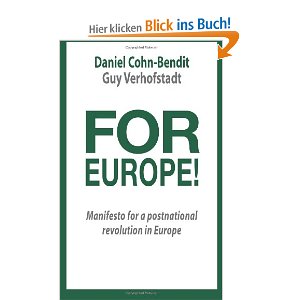Links collection
Education
Sir Ken Robinson explains a new way onhow we have to look at education. Salman Khan proposes eduction through video on how to ketch up on knowledge by joining free of charge the Khan Academy. Similarly you might find Iversity an interesting online education project on where to study fields of interest.
Development in the world for the world
Hans Roesling isintroducing the Gapminder a tool to read the data of the developmentdifferently.
After watching Josh Silver we might realize that cheap eyeglassescan be important for the children in the third world and likely moreimportant then just food.
Open Source Ecology is the phylosphie of Open Source Software adapted to hardware. DIY cuts down prices andgives an enormous access to technology needed in farming and this is only the start. In a similar way also Catarina Mota explains the world of smart materials and the website openmaterials.org gives many clues on how to use new tools to create new items with little.
Deb Roy: The birth of a word this viedeo will reveal, what today is feasible, can be measured and how the influence is massmedia can be rendered visible. Technology on a very high level - fascinating.It also gives us an idea how our influece from politics, advertisement and the media can be made visible and likely is made visible tocenters of power.
Prof. Sugata Mitra said: "My wish is to help design the future of learning by supporting children all over the world to tap into their innate sense of wonder and work together. Help me build the School in the Cloud, a learning lab in India, where children can embark on intellectual adventures by engaging and connecting with information and mentoring online. I also invite you, wherever you are, to create your own miniature child-driven learning environments and share your discoveries." His Ted presentation of the Project Self Organized Learning Environment’s (SOLE) is also highly interesting to follow and not for nothing he was the TED Winner of the year 2013.
An other great example on how to learn from history is of course the Zinn Education Project - Teaching a People's History.Health & Medicine
Surgeon Anthony Atala demonstrates an early-stage experiment that could someday solve theorgan-donor problem: a 3D printer that uses living cells to output a transplantable kidney.Economy
George Soros, student of Karl Popper and famous investor, founder of Open Society Foundations
which seeks to create tolerant societies whose governments are
accountable andopen to the participation of all people, is also the
father of theinteresting theory on reflexivity.
Jospeh Stiglitz the great economist who wrote "The Three Trillion Dollar" is talking about "The Price of Inequality".
Politics
Noam Chomsky is of course always a challenging source when examiningour society, governmental actions and the way our system is working. Daniel Cohn Bendit although
leader of the students movement already in 1968 just surprised with his
amazing view on how Europe will develop in the future into the United
States of Europe, while at the same time he explains thepolitical
parties are obsolute, closed systems, an organization in which
participants are fighting for power.
Daniel Cohn Bendit although
leader of the students movement already in 1968 just surprised with his
amazing view on how Europe will develop in the future into the United
States of Europe, while at the same time he explains thepolitical
parties are obsolute, closed systems, an organization in which
participants are fighting for power. King Abdullah II remarks at the World Economic Forum 2013 in Davos. It's time to act - it time to act now!
Happiness and satisfaction
Dan Gilbert, author of "Stumbling on Happiness".Psychologist Barry Schwartz takes aim at a central tenet of western societies: freedom of choice.In Schwartz's estimation, choice has made us not freer but moreparalyzed, not happier but more dissatisfied.
Art
 A major revolution in art was caused by Duchamp. Understanding Duchamp is a key to read modern art.
A major revolution in art was caused by Duchamp. Understanding Duchamp is a key to read modern art.